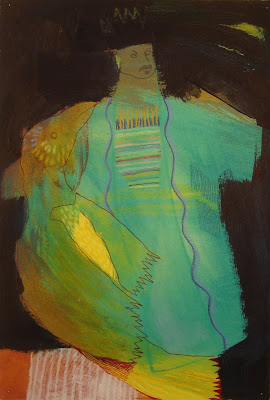
One, two, three.. one, two, three.. you, me, us.. you, me, us...
We, in America, tend to long for being swept up in the wondrous mystery of attraction… the falling in love with, or search for that key soul mate. Personally, I don’t have a single complaint or objection about being lead by the heart… although it is nice to have all other parts on board as well when making important decisions. But I also want to honor all of the infinite ways and reasons for people to come together as a couple. Everyone’s needs, personal histories, and intentions vary so much, that what people seek and need in a relationship is going to vary greatly as well.
In our culture, where we do have the freedom to enter relationships under pretty-much whatever pretence we want to, “love” has become the gold standard of what a good marriage is built on. I wouldn’t argue with this… there’s certainly a rightness to it. After-all, quintessential love can weather all hardships. But what of the many times people ride into union on the wings of a fervently beating heart and security seeking commitment, only to find that things don’t quite add up like they’d hoped. If great disillusionment, pain, and resentment start to pile into the picture, the love aspect certainly does come in handy when working through what this is all about. Still, many of us have come to a place where the life-long commitment comes to a close in a way that elicits the title “failed relationship”. There’s something about this that I think could really use the salve of compassionate understanding.
It’s true that divorce doesn’t hold the same stigma it once did, so this thread of pain and shame has loosened-up quite a bit. But the pain and resentment of dashed expectations, as well as the implication of bad judgment, are maybe even more present, now that our unions are often based more on very personal intentions.
My impression is, that these so-called failed relationships may have been more successful than people tend to give them credit for. If you think back to what it was that brought the relationship into being… what was it that you really wanted or needed? And what was it that came about? If you learned something about yourself, or you partner, that you didn’t know, then this is not a bad thing. If you married a version of your mother or father, chances are you just needed to work on these particular dynamics some more. If you came to terms with this, and freed yourself in the end, then great! Were there aspects of abuse which needed to be faced that you decided not to be part of any more… there’s saving grace here. Do you feel like you just made a big mistake, or that what once was simply is no more? Then you’ve learned some important things, and it’s so good to free each other up to move on. No need to further entrench what wasn’t working with judgment and resentment.
In fact, I tend to think that the true success of a relationship comes down to how well a person is able to navigate the hard times, rather than how brightly we shine, or how long we remain, in the relationship. Certainly it’s a great and increasingly uncommon thing to be married for 50 or 60 years. This is definitely quite the accomplishment. But when looking at the relationship over-all… if it were a painting, that both of you created together, what does that picture look like? Were the dark times terribly dark and painful? Was the foundation and ground-work weak? Was there an effort to treat the darkness with respect?… or was there a tendency to white-wash the profound depths of pain? Is there cohesion, or a lovely but dramatic dance of opposites? Has the degree of pain turned much of what was beautiful to muddy defeat?… or were you able to starkly but compassionately see the pain for what it is and acknowledge it’s poignant truth without deadening or defacing the real beauty of the whole picture.
Each relationship, whether it’s a brief conversation had with the checkout person at the grocery store, or one that’s spanned an entire life, has the potential to be a great work of art… or not. It’s up to us.



